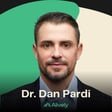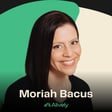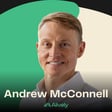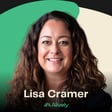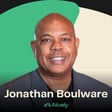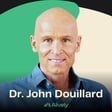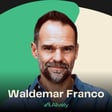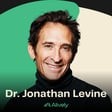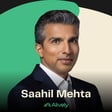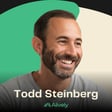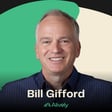
Biohack Your Metabolic Health with Lauren Sambataro - E1
Many people struggle to maintain optimal health amidst busy schedules and the demands of modern life. The solution may be simpler than you think through biohacking: taking proactive control of your body's biology through personalized strategies. This episode explores various biohacks to optimize your metabolic health, offering practical insights and methods to improve your energy levels, diet, exercise, and overall daily routines for a more vibrant and balanced life.
Lauren Sambataro is a celebrated functional health coach and corrective exercise specialist who has transformed countless lives through her holistic approach. As the co-host of the popular podcast 'Biohacker Babes', she shares her insights into biohacking and wellness with her community. As a Broadway performer living in New York City, she honed her skills in optimizing physical performance and recovery. Lauren offers bespoke coaching services, combining her experience in functional diagnostic nutrition, strength training, and stress management to create personalized health strategies. Driven by a passion for continuous learning and client empowerment, Lauren's multifaceted techniques in nutrition, exercise, and stress management continue to set new standards in the pursuit of a healthful life.
“For me, it's always trying to zoom out and not just… get stuck in my own loop, which I think is a good lesson for everyone.” - Lauren Sambataro
In this episode you will learn:
- How Lauren practices biohacking through methods like exercise intensity tracking, fasting cycles, and sleep optimization.
- The impact of the virtual lifestyle on social connections, and her strategies for maintaining community and social interactions.
- Lauren’s approach to balancing a hectic schedule with micro-recoveries for managing stress and enhancing overall well-being.
- The importance of metabolic health and how factors like stress, sleep, and environment affect it beyond just diet.
- Insights into her fitness routines, including strength training, zone two endurance workouts, and the use of minimal equipment.
- The significance of continuous learning and maintaining an open, curious mindset as essential components of thriving and living with vitality.
Resources
- If you’re interested in working with Lauren, reach out to her via her website: https://laurensambataro.com/
- Connect with Lauren on Instagram: https://www.instagram.com/biohacker_babes/
- Listen to Lauren’s podcast, Biohacker Babes: https://thebiohackerbabes.com/podcast/
- Shop all the products Lauren mentions in the episode: https://alively.com/products/laurensambataro
This podcast was produced by the team at Zapods Podcast Agency:
https://www.zapods.com
Find the products, practices, and routines discussed on the Alively website:
https://alively.com/

